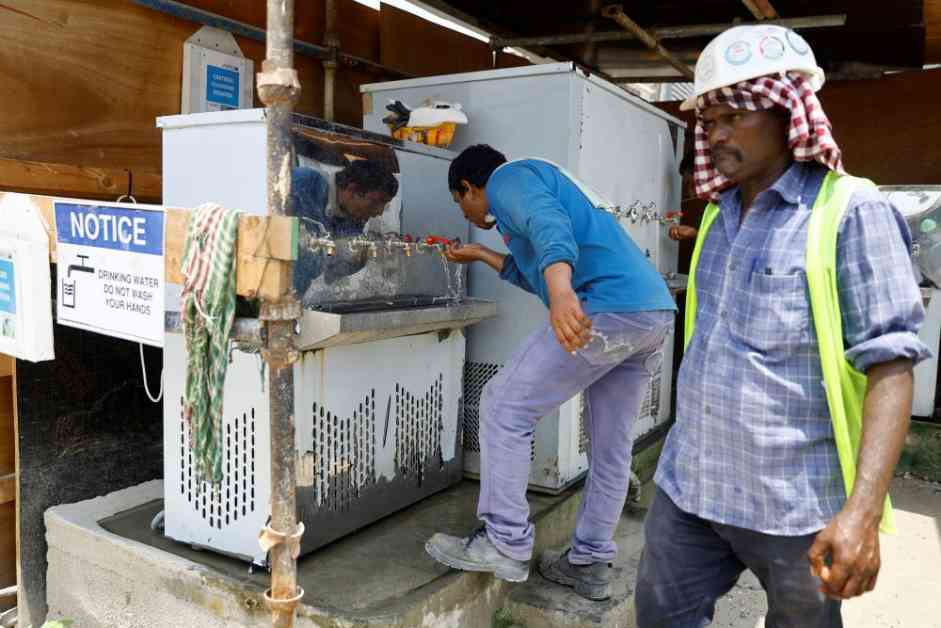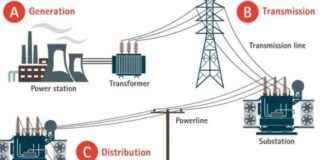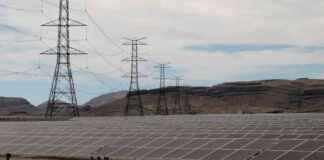Abuse of Migrant Workers in UAE Renewable Projects: A Report
Migrant workers in the United Arab Emirates (UAE) are facing exploitative conditions in the supply chains of solar and wind projects, according to a recent investigation by human rights group Equidem. The report revealed shocking details of abusive practices that could amount to forced labor, shedding light on the challenges faced by workers from South Asia and Sub-Saharan Africa.
Equidem interviewed 34 migrant workers employed by 14 local subcontracting companies, including firms specializing in solar installation, transportation, security, and cleaning. The workers shared harrowing accounts of wage theft, illegal working hours, recruitment fees, and passport confiscation, all of which violate UAE labor laws and international standards. These violations create conditions of forced labor for migrant workers in the renewable energy sector, the report concluded.
Exploitation in the Renewable Energy Sector
The Gulf States have witnessed a rapid expansion of renewable energy infrastructure in recent years, with the UAE emerging as one of the fastest-growing markets in the region. However, this growth has been marred by exploitation, as highlighted by Equidem’s findings. Workers reported discrimination, violence, harassment, overcrowded living conditions, inadequate food allowances, and relentless work schedules that left them exhausted and vulnerable.
One worker, Suaid, described his experience of being treated like an animal by his employer, working long hours without rest and facing the threat of salary cuts if he failed to meet demanding targets. The lack of basic necessities and the constant pressure to perform took a toll on the workers’ physical and mental well-being, painting a grim picture of their daily struggles.
Climate Impacts and Health Risks
The physical toll of working in extreme temperatures without adequate breaks or water was evident in the health impacts reported by some workers. Heat stress, exacerbated by climate change, poses a significant risk to workers employed in desert locations, where temperatures soar and access to essential resources is limited. The vulnerability of migrant workers from developing countries facing climate-related challenges in their home countries adds another layer of complexity to their plight.
Equidem’s investigation exposed an opaque supply chain in the renewable energy sector, where contractual relationships between workers, subcontractors, and major developers remain shrouded in secrecy. This lack of transparency increases the risk of abuse and exploitation, highlighting the urgent need for companies to conduct thorough human rights due diligence and address the vulnerabilities of migrant workers in their value chains.
Call for Accountability and Action
The findings of the report underscore the urgent need for companies operating in the renewable energy sector to prioritize the rights and well-being of migrant workers. Heightened human rights due diligence, risk assessment, and mitigation measures are essential to prevent further abuses and ensure a fair and safe working environment for all workers involved in renewable energy projects. The responsibility lies not only with companies but also with governments and international organizations to enforce labor laws and protect the rights of migrant workers.
As the renewable energy sector continues to expand, it is crucial to address the systemic issues that perpetuate exploitation and injustice. The stories of migrant workers in the UAE serve as a stark reminder of the human cost of progress and the urgent need for accountability, transparency, and respect for basic human rights in the pursuit of a sustainable future.














